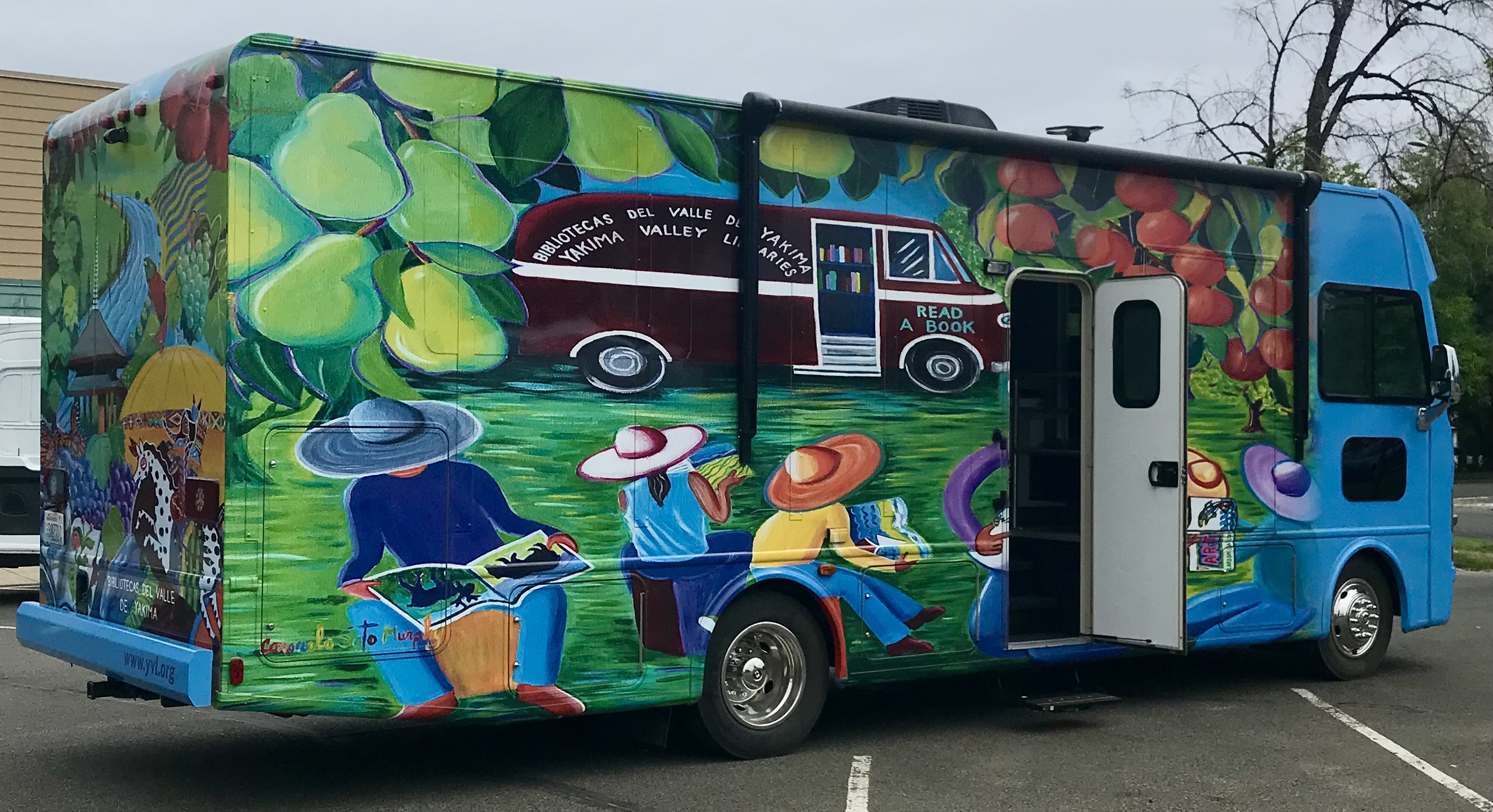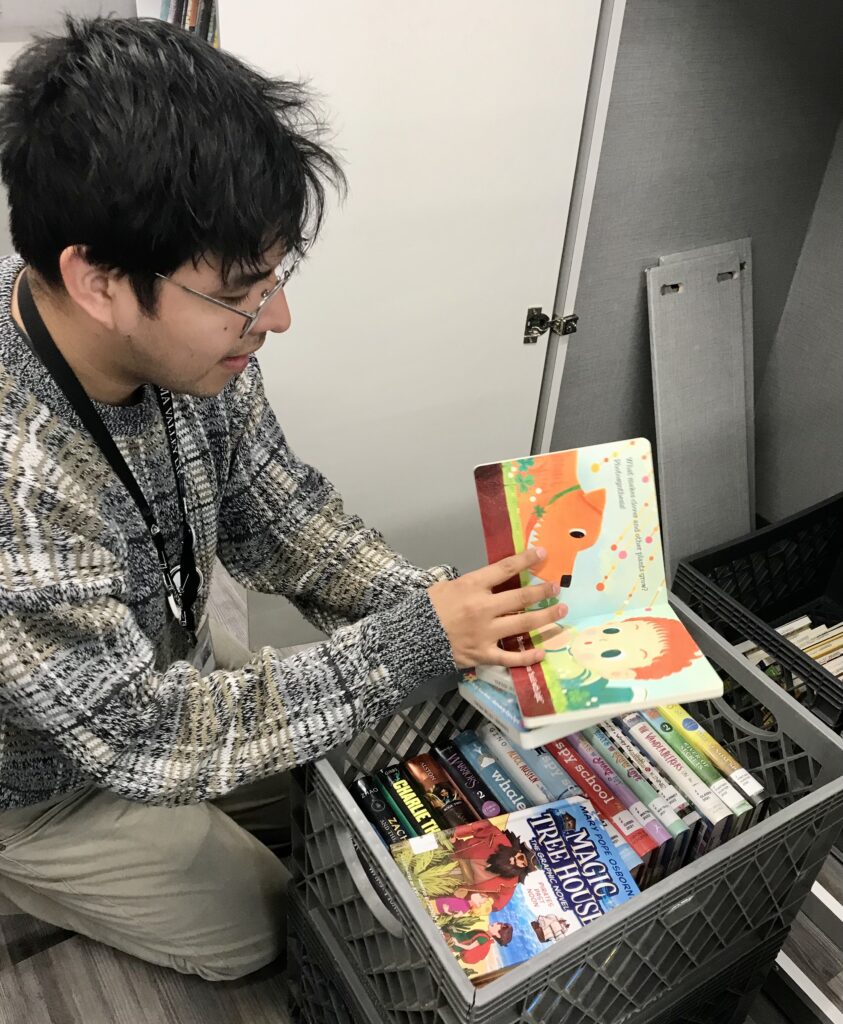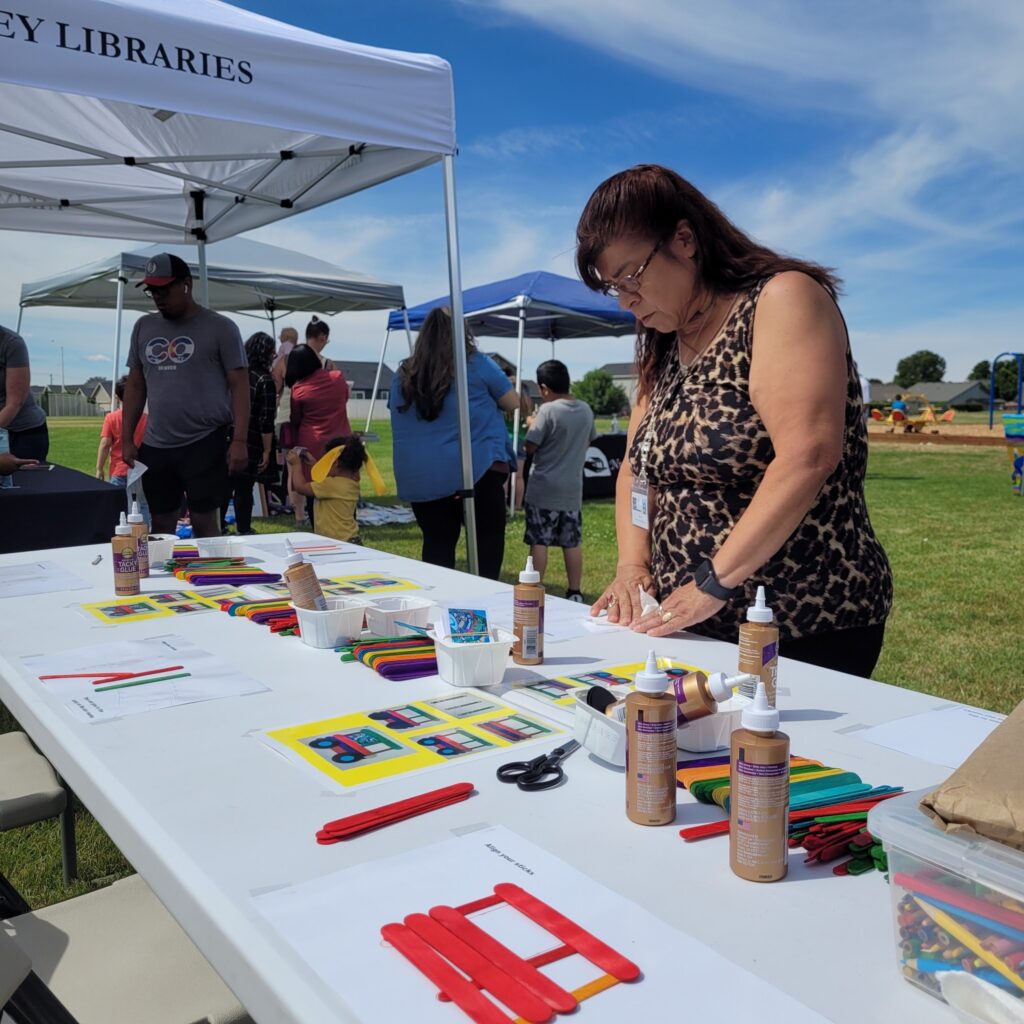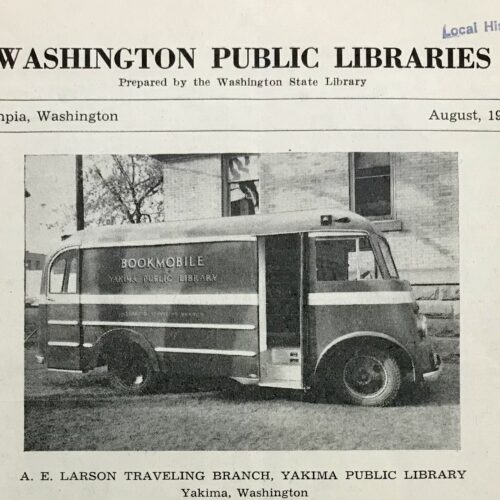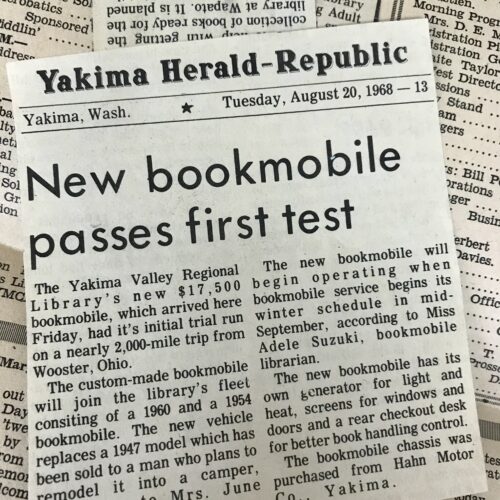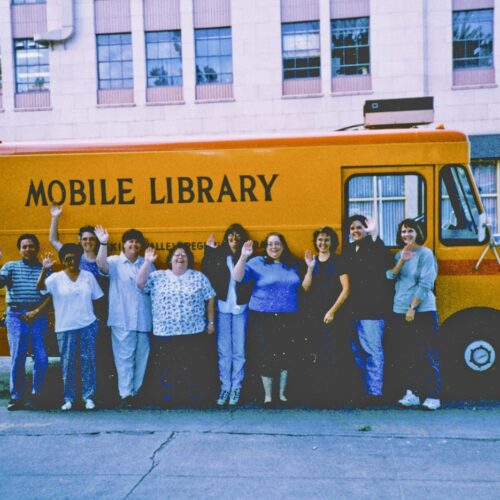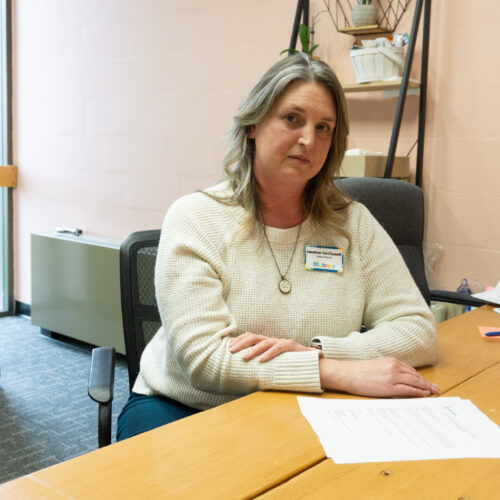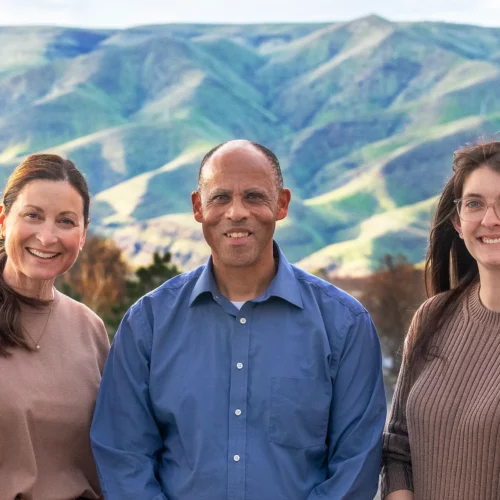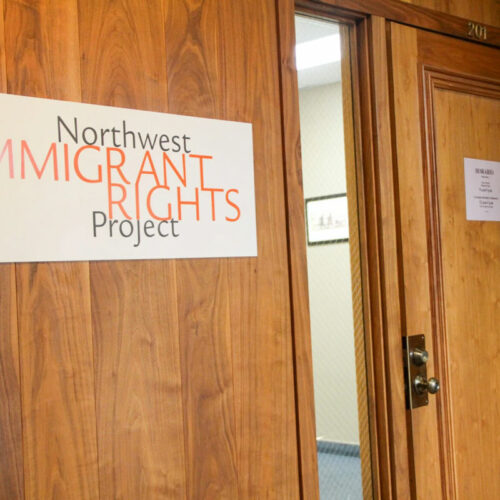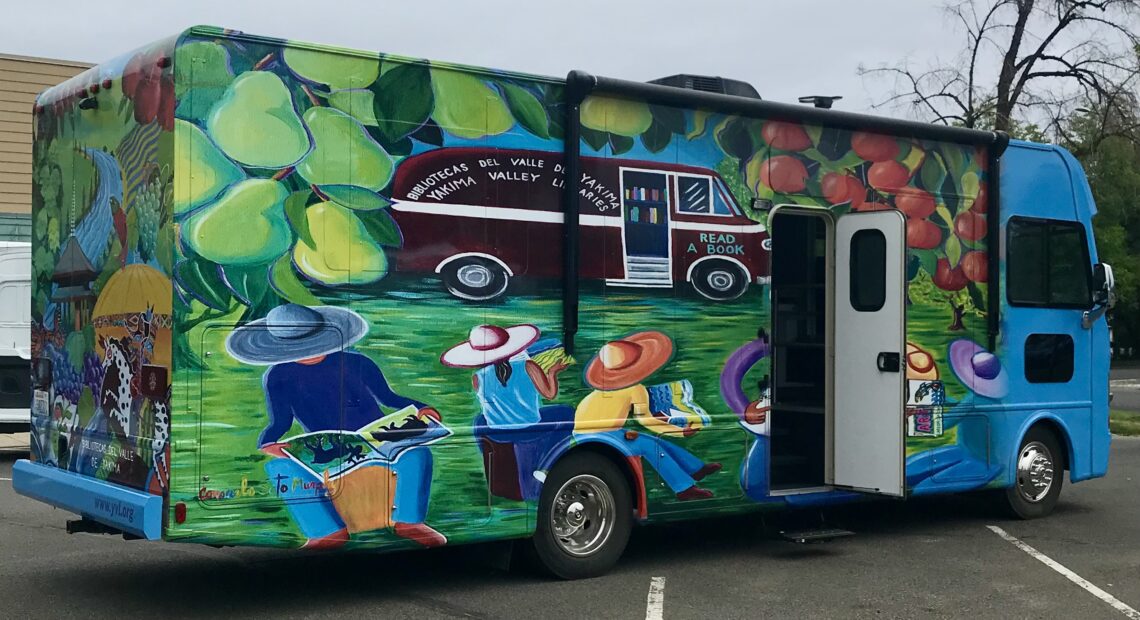
The return of the bookmobile to the Yakima Valley
Listen
(Runtime 4:11)
Read
After 25 five years, a library on wheels is driving again through the Yakima Valley. With a modern bookmobile, the libraries want to break down the barriers to accessing their services and provide fun experiences that bring communities together.
Colorful paintings by artist Consuelo Soto Murphy cover an RV’s side panels, representing the Yakima Valley’s diversity and landscape.
The RV is the bookmobile recently launched by the Yakima Valley Libraries. It revives the old bookmobile service that ended operations in the late ’90’s.
Bryan Martinez is the bookmobile manager and driver.
“I’m super excited to hit the road,” said Martinez.
The vehicle started running throughout the Valley last week. Yakima and Sunnyside were the first stops.
Martinez said he’s driven big vehicles in the past, and now he’s transferring his skills to drive the bookmobile.
About 150 people visited the bookmobile during the first reveal events.
Martinez says the new bookmobile service will break down the barriers people experience in accessing library services, the same ones he experienced as a child.
“Where I grew up, my closest library was maybe four or five miles away. And, as a kid, I wasn’t going to be able to walk there,” said Martinez.
Martinez, who was the supervisor at the Tieton Community Library, said the greatest part of his new job is digging through the data to find out where underserved communities are.
“Even between First Street and 60th Street, we have no library there in town. What’s exciting is being able to find those places and try to get them services,” said Martinez.
Sherrie Prentice is the Yakima Valley Libraries’ outreach manager. For two years, she worked on the bookmobile project. She says it will bring the library services to rural and underserved communities every week.
“The bookmobile is going to make scheduled stops at various schools, parks and neighborhoods throughout Yakima County on Tuesdays, Wednesdays and Thursdays,” said Prentice.
Prentice said the bookmobile can carry up to 3,000 items.
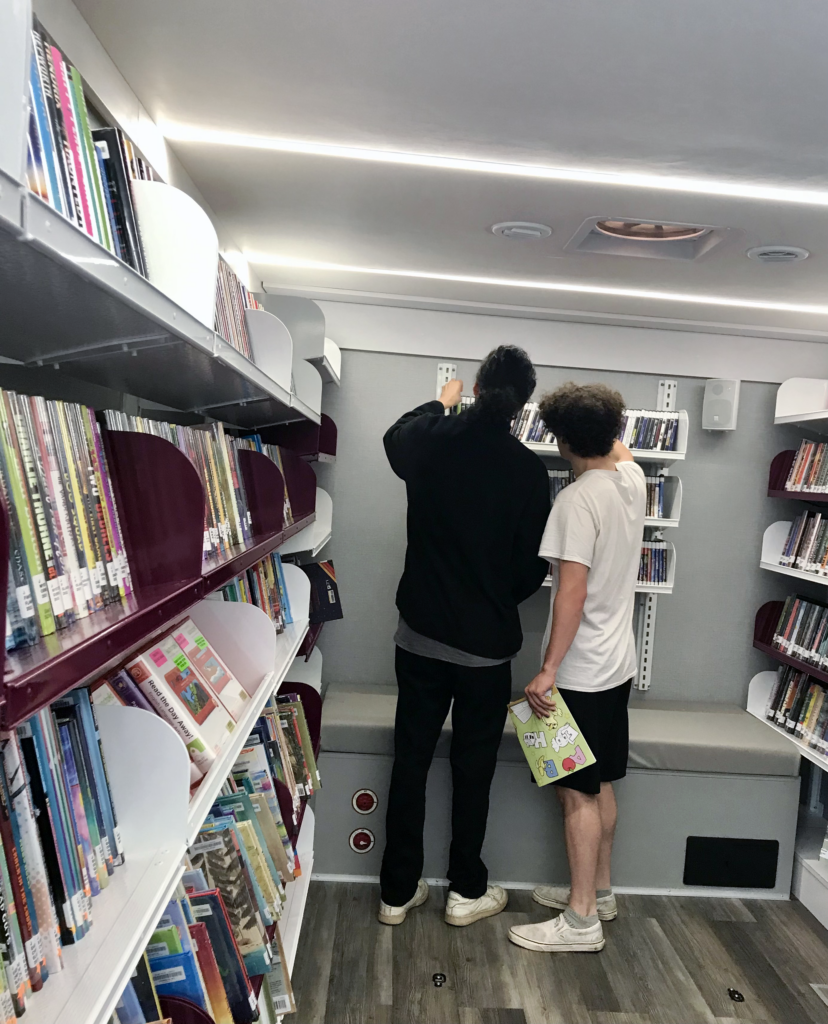
Patrons look for materials during their visit to the bookmobile in Yakima. (Credit: Johanna Bejarano / NWPB).
“There will be books and books on CD, DVDs. People will be able to pick up holds. There will be some storytimes and some takeaway crafts, especially for summer reading,” said Prentice.
She said people also will have access to a computer, a printing station and Wi-Fi. A bilingual team is available to answer people’s questions.
Prentice said the service will also be expanded to childcare centers and daycares through early learning programs in Yakima.
“The bookmobile team is going to continue to gather community input and assess our bookmobile stops,” said Prentice.
Bob Harrison is the Yakima City manager and has been a patron of library branches for years.
“A bookmobile like this for children to be able to access, and taking it to them, is going to be a tremendous improvement in service and a tremendous benefit for the children in the county,” said Harrison.
Carlos Pelley is the archivist for Yakima Valley Libraries. He said bookmobiles have a long history in the area.
“The first bookmobile for the Yakima Public Library began, actually, service in 1941. It was called the A.E. Larson Traveling Branch,” said Pelley.
Pelley said it was named after the first benefactor.
“The Larson traveling branch was a Chevrolet truck able to hold about 1,500 books and it operated till about 1961 when it was replaced by a Ford,” said Pelley.
In the past, says Pelley, three bookmobiles existed in the Valley.
“There was another library service called the ‘Rural County Library District of Yakima County’ that was formed in 1945. They got their own bookmobile service in addition to having library branches,” said Pelley.
The rural library bookmobile was a converted station wagon, which had wood paneling on it and lightweight removable shelves that were able to hold about 500 books, Pelley recounted.
He said at that time, bookmobiles were the most economical way to expand the library services to the communities. But it also responded to people’s needs from what was going on in the war during the 1940’s.
“People were scraping by and looking for ways to save money for the war effort. There was a lot of people who wanted to have something to do other than just focus obviously on what was going on overseas. So, libraries were a way to kind of serve the public in that way.” said Pelley.
Pelley says after the energy crisis of the ’70’s, and its subsequent impact, plus the construction of libraries in schools, the bookmobile service evolved until it eventually disappeared.
“It appears that in ’98, the bookmobile service essentially was over, and it’s transformed into something completely different, as just going to nursing homes and community retirements areas,” Pelley.
Prentice says she wants the new bookmobile to be as successful as the three that existed in the Valley in the past, when the bookmobiles circulated more books than all the libraries combined.

